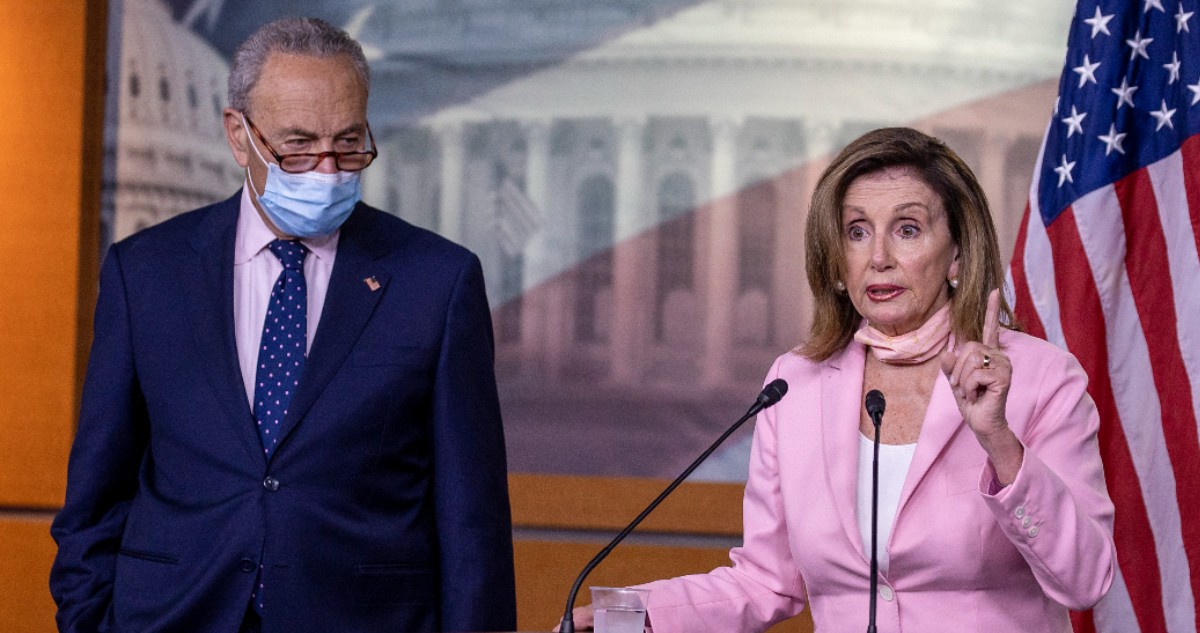OPINION: This article may contain commentary which reflects the author's opinion.
In yet another sign that there could be a massive red wave during the November midterms, new data show that Americans by the hundreds of thousands have switched to the Republican Party.
The switch in party affiliations came over the course of the past 12 months, as policies enacted by President Joe Biden and spending bills passed by the Democrat-controlled Congress have been roundly blamed for rampant inflation that has seen record-high average gas and diesel fuel prices, rising food and rent costs, and an enduring supply chain crisis as well as a chaotic, porous southwestern border.
Interestingly, Republicans are gaining a lot of ground in the suburbs of both large and medium-sized cities, “where voters who supported President Biden in 2020 are struggling with inflation and growing increasingly critical of Democratic social issues,” Fox News reported, citing data compiled by The Associated Press.
The outlet adds:
While not the final nail in the coffin for Democrats, the voter trend is yet another indicator that Republicans stand to make large gains in Congress and state governments across the country in November.
Biden’s administration has scrambled to address skyrocketing gas prices, as well as inflation that sits at a 40-year high and shows no signs of slowing down.
Members of Biden’s own party have criticized the White House response to the economic crises, saying he is being too passive.
“I support the president’s efforts, but we need a bolder vision and faster action,” Rep. Ro Khanna, D-Calif., wrote in an op-ed for The New York Times earlier in June.
“To meet the moment, Mr. Biden should convene an emergency task force empowered to lower prices and address shortages. We need an all-out mobilization, not just a few ad hoc initiatives reacting to headlines,” he added.
Perhaps nowhere has the shift in Republican voter registration been as significant as in Florida, where the GOP now outnumbers registered Democrats for the first time in the state’s history.
Gov. Ron DeSantis announced in April that Republicans had amassed a 120,000 voter edge over Democrats in the state.
“When I got elected governor, there were almost 300,000 more registered Democrats in the state of Florida than Republicans. Today, there are over 120,000 more registered Republicans, and we never had more Republicans in the history of the state until I became governor,” DeSantis said while signing election integrity legislation that aims to ensure elections remain secure in the Sunshine State.
“I think people do appreciate a free state and I think they appreciate a lot of what we’ve been able to do,” he said, pointing to a few of the key pieces of legislation the legislature and his administration made a reality.
“We had a special session of the legislature last week and … the legislature passed a couple of bills,” he said, pointing to the congressional districts, including action taken against Disney’s Reedy Creek, which he said, “was basically run by Walt Disney Company.”
“That was really the first step in what’s going to be a process to make sure that, you know, Disney should not run its own government. Disney should not be exempt from the laws that every single person in Florida has to pass,” he said, defending the action from critics.
Democratic operatives have been saying for months the party is cruising to a blowout in the fall thanks to a range of factors.
“It’s bad,” an anonymous Democratic strategist told The Hill in April. “You have an energy crisis that’s paralyzing and inflation is at a 40-year high and we’re heading into a recession. The problem is simple. The American people have lost confidence in him.”
“Everyone needs to come to terms with the reality that we’re going to get slaughtered in November,” the strategist continued. “That’s a fact. His polling has gotten worse, not better. It’s indicative of the fact that people have lost confidence in his leadership. There’s nothing they’re going to be able to do.”
Bill Galston, chair of the Brookings Institutions governance study program and a former domestic policy adviser to former President Bill Clinton, said that “unless and until inflation comes down appreciably, that there’s going to be a ceiling on his job approval that’s a lot lower than the White House wants it to be.”
Gallup senior editor Jeff Jones added, “High gas prices are one of the biggest anchors on presidential approval.”
